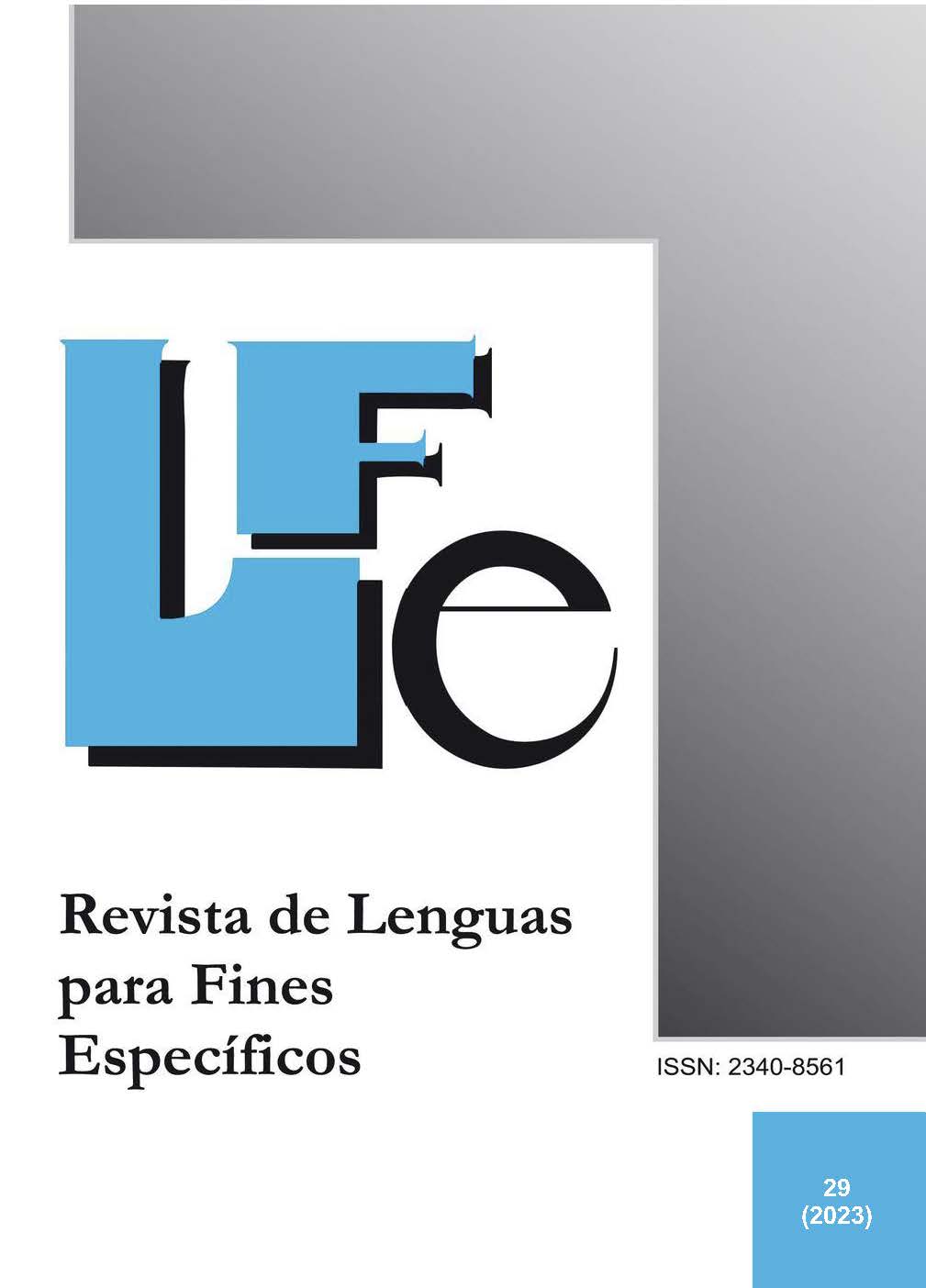Lexicometrics tools in French with university objectives class: specific verbonominal constructions autonomous learning through Sketch Engine
Keywords:
Specific verbonominal constructions, FUO, Sketch Engine, Digital HumanitiesAbstract
French with university objectives (FUO) students are characterized by their heterogeneity in terms of language level, their motivation and the area of knowledge where they apply the foreign language. In this contexte, the teacher must carry out an adaptive and mutualized teaching process, with the purpose of offer resources to the students so that they can fulfill their linguistic needs autonomously. This article focuses on the acquisition of a specific phenomenon: verbonominal constructions, term which, for us, comprehend collocations and support verb constructions (SVC), whose unpredictable selection of the verb hinder their learning. Because of the scarce treatment of these phraseological data in bilingual lexicographical works, we propose to show the didactic applications of the lexicometric tool, Sketch Engine, to learn these constructions in FUO class.
Downloads
References
Alonso Ramos, M. (2004). Las construcciones con verbo de apoyo. Madrid: Visor Libros.
Bekerig, V. & Sutton. T. (2009). Lexique bilingue de la mode - français/anglais, anglais/français. París: Éditions Falbalas.
Bordo, W., Goes J. & Mangiante J. (2016). Le français sur objectif universitaire. Entre apports théoriques et pratiques de terrain. Arras: Artois Presses Université.
Campos Plaza, N., Ortega Arjonilla E. & Cantera Ortiz De Urbina J. (2005). Diccionario jurídico-económico. Granada: Editorial Comares.
Casares, J. (1950). Introducción a la lexicografía moderna. Madrid: Consejo Superior de Investigaciones Científicas.
Charbonnier, C. (2020). Diccionario de términos culinarios españolf-francés francés-español. Cáceres: Servicio de Publicaciones Universidad de Extremadura.
Corpas Pastor, G. (1996). Manual de fraseología española. Madrid: Gredos.
Díaz Rodríguez, C. (2017). Étude contrastive français-espagnol des unités phraséologiques contenant une lexie chromatique (Tesis doctoral). Universidad de Estrasburgo-Universidad de La Laguna.
Díaz Rodríguez, C. (2018). ¿Colocaciones en vías de desfraseologización? De la selección léxica a la selección semántico-léxica. Anales de Filología Francesa, 26, 77-93.
Ferreras, J. & Zonana G. (2000). Dictionnaire juridique et économique. París: La Maison du Dictionnaire.
Gross, G. (2012). Manuel d’analyse linguistique. Lille: Presses Universitaires. Septentrion.
Koike, K. (2001). Colocaciones léxicas en el español actual: estudio formal y léxico semántico. Madrid/Tokio: Universidad de Alcalá/ Takushoku Universidad.
Ministerio de Educación, Cultura y Deporte. Marco común europeo de referencia de las lenguas. <https://cvc.cervantes.es/ensenanza/biblioteca_ele/marco/cvc_mer.pdf> [16/9/2022].
Penadés Martínez, I. (2012). El concepto de colocación a la luz de las colocaciones del tipo verbo más locución adverbial. RILCE: Revista de filología hispánica, 33(3), 993-991.
Sketch Engine. <https://www.sketchengine.eu> [11/10/2022].
Tabares Plasencia, E. (2016). Fraseología jurídica y variación topolectal. Onomázein: Revista de lingüística, filología y traducción de la Pontificia Universidad Católica de Chile, 33, 1-15.
Tutin, A. (2005). Le dictionnaire des collocations est-il indispensable? Revue française de linguistique apliquée, X, 31-48.
Downloads
Published
How to Cite
Issue
Section
License
Authors who publish with this journal agree to the following terms:
- Authors retain copyright and grant the journal right of first publication with the work simultaneously licensed under a Creative Commons Attribution License that allows others to share the work with an acknowledgement of the work's authorship and initial publication in this journal.
- Authors are able to enter into separate, additional contractual arrangements for the non-exclusive distribution of the journal's published version of the work (e.g., post it to an institutional repository or publish it in a book), with an acknowledgement of its initial publication in this journal.
- Authors are permitted and encouraged to post their work online (e.g., in institutional repositories or on their website) prior to and during the submission process, as it can lead to productive exchanges, as well as earlier and greater citation of published work (See The Effect of Open Access).

Revista de Lenguas para fines específicos is licensed under a Creative Commons Reconocimiento-NoComercial-SinObraDerivada 4.0 Internacional License.
























